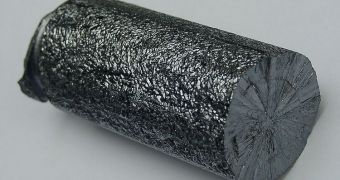Researchers at the University College London (UCL), in the United Kingdom, announce the development of a Resistive RAM memory (ReRAM) chip made up entirely of pure silicon oxide.
This achievement opens up a new avenue of research for creating super-fast computer memory chips, which would operate considerably faster than anything on the market today. The thing about this type of RAM is that the electrical resistance of silicon oxide changes when voltage is applied.
In addition, the materials remember this charge even when an entire computer is shut down. Therefore, the memory can be accessed a lot faster upon booting the machine. In addition to working faster, the new generation of metal oxides will also enable significantly greater memory storage capabilities.
ReRAM requires a lot less energy and space to operate than existing technologies, including the ever-present Flash memory. Details of the new silicon oxide-based structure were presented in the latest issue of the esteemed Journal of Applied Physics.
Inside the newly created materials, some atoms come together to form pure silicon filaments within the silicon oxide. These structures then act as switches, enabling the entire material to change states.
Remarkably, the UCL material does not require a vacuum or special temperature and pressure levels to work. It can operate at room temperature, which represents a technical achievement in itself. This means that the technology will not be that expensive to implement at a large scale.
Several leading semiconductor companies are already taking to the UCL team, and the university's technology transfer spin-off company, for acquiring the rights to use this new material. The scientists have already filed for a patent on their new technology.
“Our ReRAM memory chips need just a thousandth of the energy and are around a hundred times faster than standard Flash memory chips,” Dr. Tony Kenyon explains. He holds an appointment with the UCL Department of Electronic and Electrical Engineering.
“The fact that the device can operate in ambient conditions and has a continuously variable resistance opens up a huge range of potential applications. We are also working on making a quartz device with a view to developing transparent electronics,” the expert adds.
“The potential for this material is huge. During proof of concept development we have shown we can program the chips using the cycle between two or more states of conductivity. We're very excited that our devices may be an important step towards new silicon memory chips,” says Adnan Mehonic.
He is a researcher with the UCL Department of Electronic and Electrical Engineering at the university, e! Science News reports.

 14 DAY TRIAL //
14 DAY TRIAL //